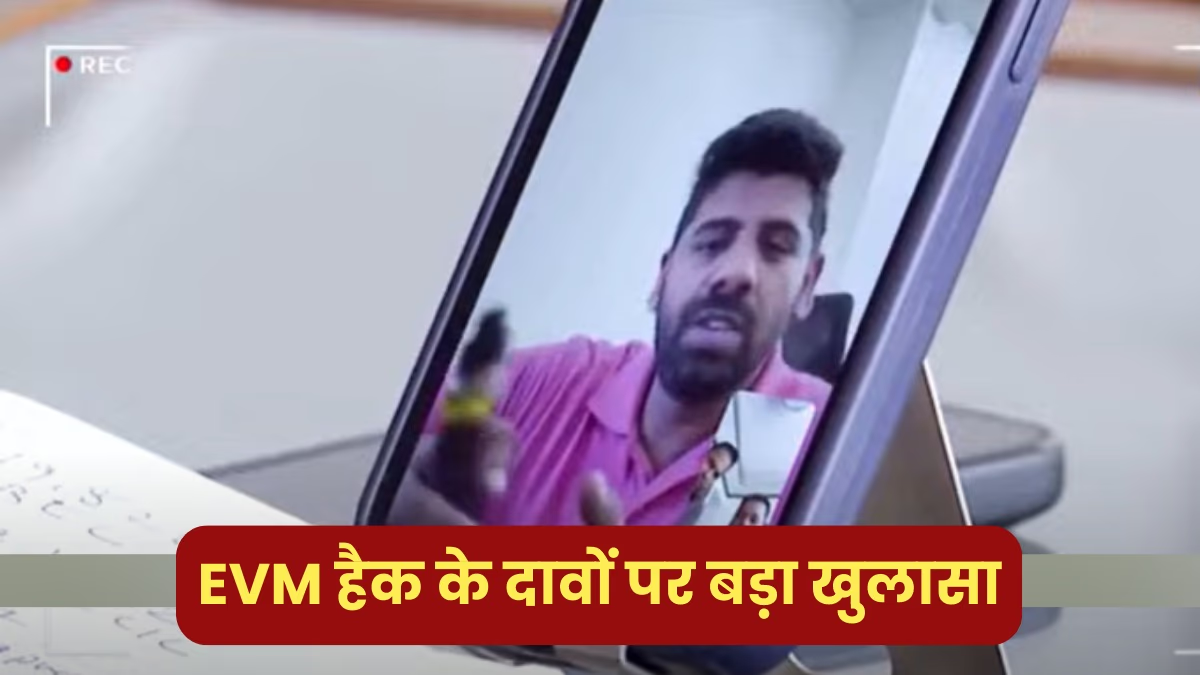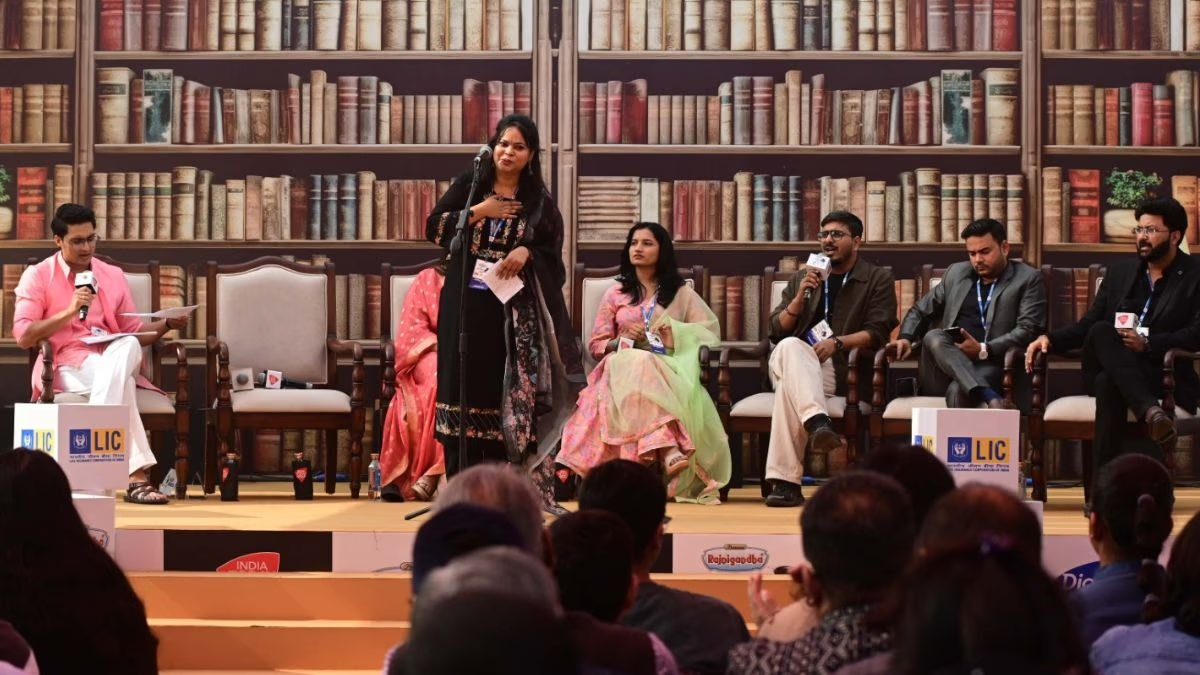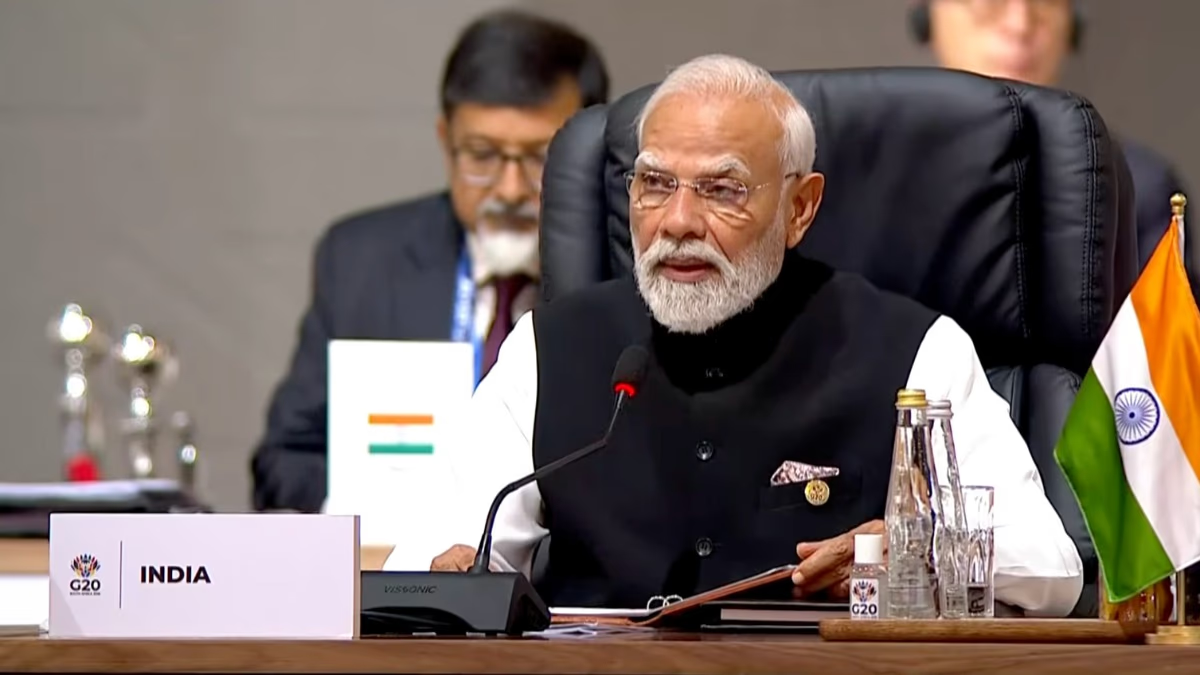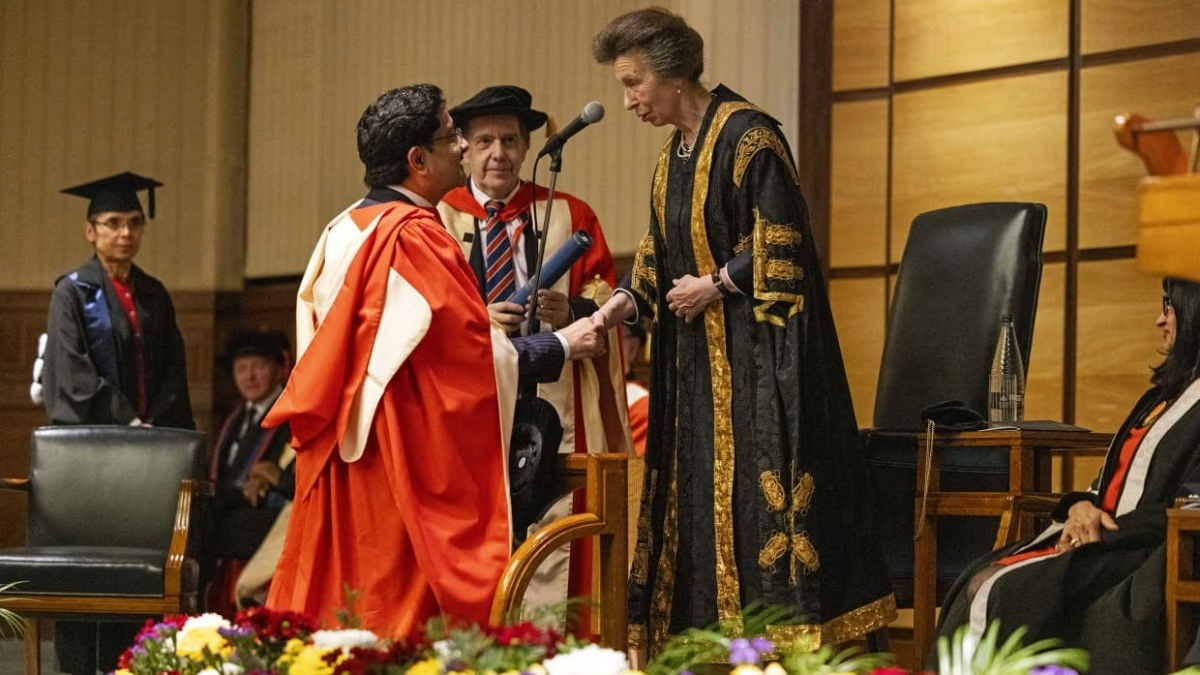With the Maharashtra elections fast approaching, political tensions are soaring. Amid the hustle of campaigns, electronic voting machines (EVMs) have once again become a subject of heated debate. The center of this controversy is a self-proclaimed whistleblower, making explosive claims about India's EVMs.
Syed Shuja, asserting his capability to hack EVMs using technology from the US Department of Defense, is reportedly contacting political figures in Maharashtra, enticing them with electoral success promises through EVM manipulation. He claims to be under contract with the US Defense Department.
Recently, he reached out to a senior MP from the Maha Vikas Aghadi (MVA). The MP discussed the events with the AajTak team for a thorough investigation. Posing as the MP’s personal assistant, the AajTak Special Investigations Team engaged with Shuja to delve into his assertions. It's allegedly the same person who accused the government years ago of election manipulation via EVMs and now claims to replicate such acts.
AajTak Team Contacts Shuja Disguised as MVA MP’s Assistant -
Reporter:
As I mentioned in the previous message, we have one of our top associates, who is overseeing this task in collaboration with us. He needs your assistance but wants a face-to-face meet. Can I add him to a video call?
Syed Shuja:
Give me a minute.
Reporter:
Introducing to you, Alpesh Ji. They have secured 102 seats and aim to implement this on 75.
Reporter 2 (posing as Alpesh):
We are looking at numbers between 63 and 75, and will provide a final count post-discussion.
Syed Shuja:
It could be 63.
Reporter:
Can we confirm 63?
Syed Shuja:
Yes, 63 can be confirmed.
Reporter:
Will you need names for the 63?
Syed Shuja:
Give me the names. I can access 63 machines out of 105, but I need VVPAT machine details.
Reporter:
Can you specify the 63 seats so I can prepare details?
Syed Shuja:
I have access to 281 out of 288, but some regions pose obstacles with frequency isolation.
Not only did Shuja claim the ability to secure a party's success by hacking EVMs, but he also demanded around 6 million USD (approximately 52-53 crores INR).
Reporter:
What's the cost for securing 63 seats?
Syed Shuja:
Currently, securing terminal access for the signaling system ends up costing about 6 million 72 thousand.
Reporter:
Is that in US dollars or INR?
Syed Shuja:
It's in dollars. In Indian rupees, it would be approximately 52 or 53 crores.
Claiming to minor in PhD Mathematics, Shuja talked about disrupting machines for frequency isolation and EVM signal manipulation. However, these claims were later found to be entirely baseless with no technical grounding.
Shuja claimed the need for someone to approach a specific phone application to scan areas, identifying an isolatable frequency. E
Reporter:
Initially, you asked for 20 people; now how many do you need?
Syed Shuja:
We need about 60 to 64 people on the ground.
Reporter 2 (Alpesh):
What will these people do on the ground? What will be their roles?
Syed Shuja:
I need to isolate the signal. Since 2G networks aren’t operational in India anymore, we need frequencies ranging from 102 to 115 to isolate from 4G and 5G networks.
Reporter 2 (Alpesh):
Will these be our people or yours?
Syed Shuja:
I need someone with an application in hand to scan the area, figuring out which frequency needs isolation. Police walkie-talkie usage frequency and EVM frequency align in their shortwave, which I need to identify ensuring no interception.
Reporter:
What EVM information would you require?
Shuja:
Control unit, ballot unit, and VVPAT will go to which polling booth, presented in PDFs and includes sequence codes. EVM’s major challenge is candidate-party sequence codes like Congress's INNP, BJP's INBP. Regional parties have distinct codes. Each candidate has a sequence. For instance, if Congress candidates are number 1 in 50 polling booths, in others, the same candidate could be number two. Working across 100 machines simultaneously may favor the BJP, which I wouldn't want. With VVPAT details, I can attach the correct order to candidates identified. That’s information obtainable from the returning office.
Reporter:
Post-VVPAT info, how will hacking proceed? Post-voting?
Shuja:
I’ll program it beforehand. If the program already favors BJP, on the voting day during transmission, I’ll intercept, sending files to the election commission, seemingly from them.
Reporter:
Does this happen on election or counting day?
Shuja:
Two to three days are critical; even inactive EVMs can transmit. A new file commences on machine opening, with subsequent transmission checks. Ensuring hourly scans over three days remains key for transmission monitoring.
Unveiling EVM ‘Whistleblower’ Claims
Shuja previously asserted EVM hack capabilities in altering machine orientation for partisan outcomes. On January 21, 2019, he joined a press conference held by the Indian Journalists Association (IJA) in London via video call, vocalizing explosive notions. Linking 2009-2014 work with Electronics Corporation of India Limited (ECIL) in creating the EVMs employed in India's 2014 elections.
He previously stated that specific frequency interference could potentially manipulate election results—a hack developed during his time at ECIL in 2013. Moreover, he alleged EVM tampering linked to communal clashes in Kishanbagh, Hyderabad, later dismissed by local police.
Shuja's assertions stretched beyond EVM hacking's technical errors. He alleged 2014's elections were falsified in favor of the BJP. Former Congress leader Kapil Sibal once elevated these claims, questioning EVM credibility.
Back then, investigations by AajTak exposed the groundless nature of these claims. However, five years down the line, Shuja has resurfaced amid the Maharashtra elections, reclaiming headlines.
Election Commission Dismisses EVM Hacking Claims
ECIL and the Election Commission promptly dismissed Shuja’s allegations. ECIL released a statement denying his employment or involvement in the design and development of EVMs between 2009 and 2014.
Rear Admiral (retired) Sanjay Chaudhary, Chairman and Managing Director of ECIL, stated Shuja’s nonexistent role or connections with ECIL. The Election Commission discarded Shuja’s allegations, lodging a police complaint in Delhi, leading to an FIR registration against him. The Election Commission insists EVM tampering isn't possible and that Shuja’s claims hold no water.
Fact-Checking and Critique of Claims
Numerous specialty and fact-checking bodies have assessed Shuja’s proclamations, revealing credibility deficiencies. Hari Krishna Prasad Vemuru, a Hyderabad-based EVM expert previously engaged in EVM hacking discussions, called Shuja’s logic “irrational,” refusing belief in his assertions.
Vemuru advocates opening EVM architecture to scholars and ethical hackers for flaws identification and correction.
Pune’s Whitehat hacker, consultant to the Indian Armed Forces on cryptology, Ajit Hatti, dismissed Shuja’s claims as absurd, particularly his contention about using aired-signal EVM hacks during 2014’s elections, dismissed since EVMs didn’t wirelessly communicate nor did Jio exist.
Shuja’s Dubious Claims from Canadian Soil
Shuja's academic and professional credentials also warrant scrutiny. He claims a minor PhD in Mathematics from Jawaharlal Nehru Technological University Hyderabad (JNTUH) and a B.Tech in Computer Science from Shadan College, Hyderabad. However, investigations reveal no record at these institutions.
Having sought refuge in Chicago, Shuja alleges US Department of Defense contractual work. Granted asylum by the US on March 1, 2018, post-claims of assault following 2014 EVM tampering revelations. Yet, these allegations' verification remains pending.




